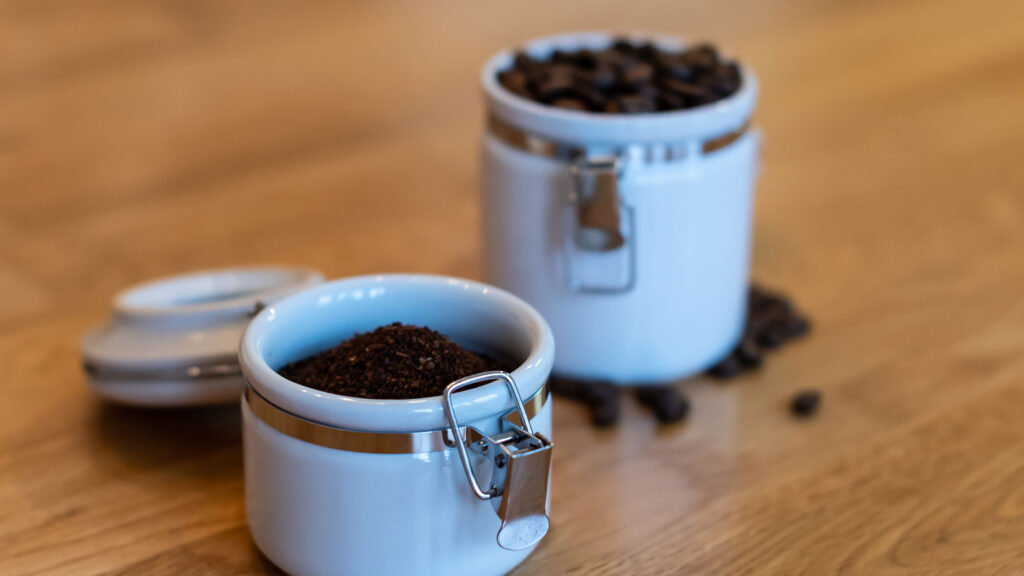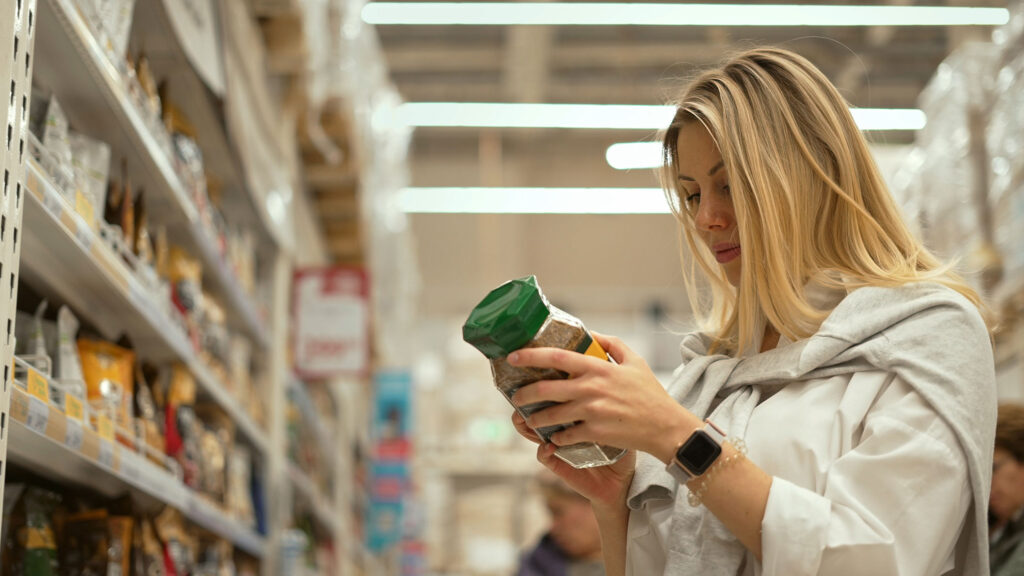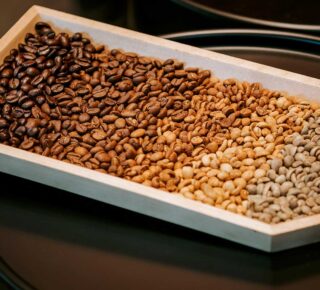
Coffee storage is a key step in enjoying your best cup. Once you’ve found your perfect roast, you’ll want to keep it properly stored for maximum freshness and flavor until it’s time for brewing.

Ideal coffee bean storage conditions: airtight and cool
Here are five ways to preserve your coffee beans’ fresh roasted flavor as long as possible—and protect them from air, moisture, heat, and light (aka their greatest enemies).
- Buy smaller batches of freshly roasted coffee. Coffee begins to lose freshness almost immediately after roasting. Try to buy smaller batches more frequently—enough for one or two weeks.
- Take it out of the retail packaging. Your coffee often comes in packaging that is not ideally designed for long-term storage. Using an airtight container for coffee storage will help it stay fresher, longer – especially pre-ground coffee.
- Store it in opaque containers. Clear canisters let in light, which can compromise the taste of your coffee. Use aesthetically pleasing jars of beans as décor only!
- Keep it in a dark and cool location. Avoid cabinets near the oven or dishwasher, as well as any areas that get strong afternoon sun—all can get too warm.
- Wait to grind your coffee beans. With proper coffee bean storage, you can wait and grind the amount you need immediately before brewing, giving you the freshest flavor.

Freezing coffee beans
There are differing views on whether freezing (or refrigerating) coffee is a good idea. The main consideration is that coffee absorbs and retains moisture—as well as odors and tastes—from the air around it. In fact, many people recommend using coffee as a natural air freshener!
Sippable Fact
Another word for coffee’s quality of retaining moisture is hygroscopic (a bonus word for coffee lovers to add to their lexicon).
Most home storage containers still let in small amounts of oxygen, which is why food stored a long time in the freezer can suffer freezer burn, and condensation can build up in the refrigerator. These options are probably most beneficial if you live in a humid climate, where moisture in the air would be more of an issue when storing at room temperature.
If you are refrigerating or freezing coffee beans, be sure to use a truly airtight container. When you need to get coffee from the container, quickly remove as much as you need for no more than a week at a time. Then, return the rest before any condensation forms on the coffee.

Does coffee expire?
If you’re a coffee lover, you probably go through your coffee stash pretty efficiently. But, if you’ve ever looked in your pantry, spotted a dusty bag in the back, and asked “Does coffee expire?” here’s what you need to know.
After the peak of freshness, most roasted coffee beans won’t expire in the sense that they’re unsafe to brew and drink, unless they have been exposed to moisture and develop mold. However, over time, roasted coffee beans will decline in quality. They will noticeably lose aroma, and sometimes, they lighten in color. When you brew these beans, the coffee will lack flavor and may taste stale.
How long does coffee last?
So, how long does coffee last? Well, it depends on the form of your coffee—and how it’s packaged and stored. Here’s a quick guide on how long coffee retains its freshness, assuming that opened coffee has been transferred into airtight containers.
| Type of Coffee | Retains Freshness |
|---|---|
| Unopened packages of roasted coffee beans or ground coffee | Until the best-by date |
| Coffee pods and instant coffee | Until the best-by date |
| Roasted coffee beans (room temperature) | 1–3 weeks |
| Roasted coffee beans (refrigerated) | 2 weeks |
| Roasted coffee beans (frozen) | 3–4 months |
| Ground coffee (room temperature) | 1–2 weeks |
Feeling the urge to go brew your coffee right now? Check out different methods for brewing to ensure you get exactly the cup you’re craving.





